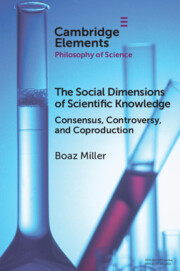Refine search
Actions for selected content:
1 results

The Social Dimensions of Scientific Knowledge
- Consensus, Controversy, and Coproduction
-
- Published online:
- 30 December 2024
- Print publication:
- 06 February 2025
-
- Element
- Export citation
